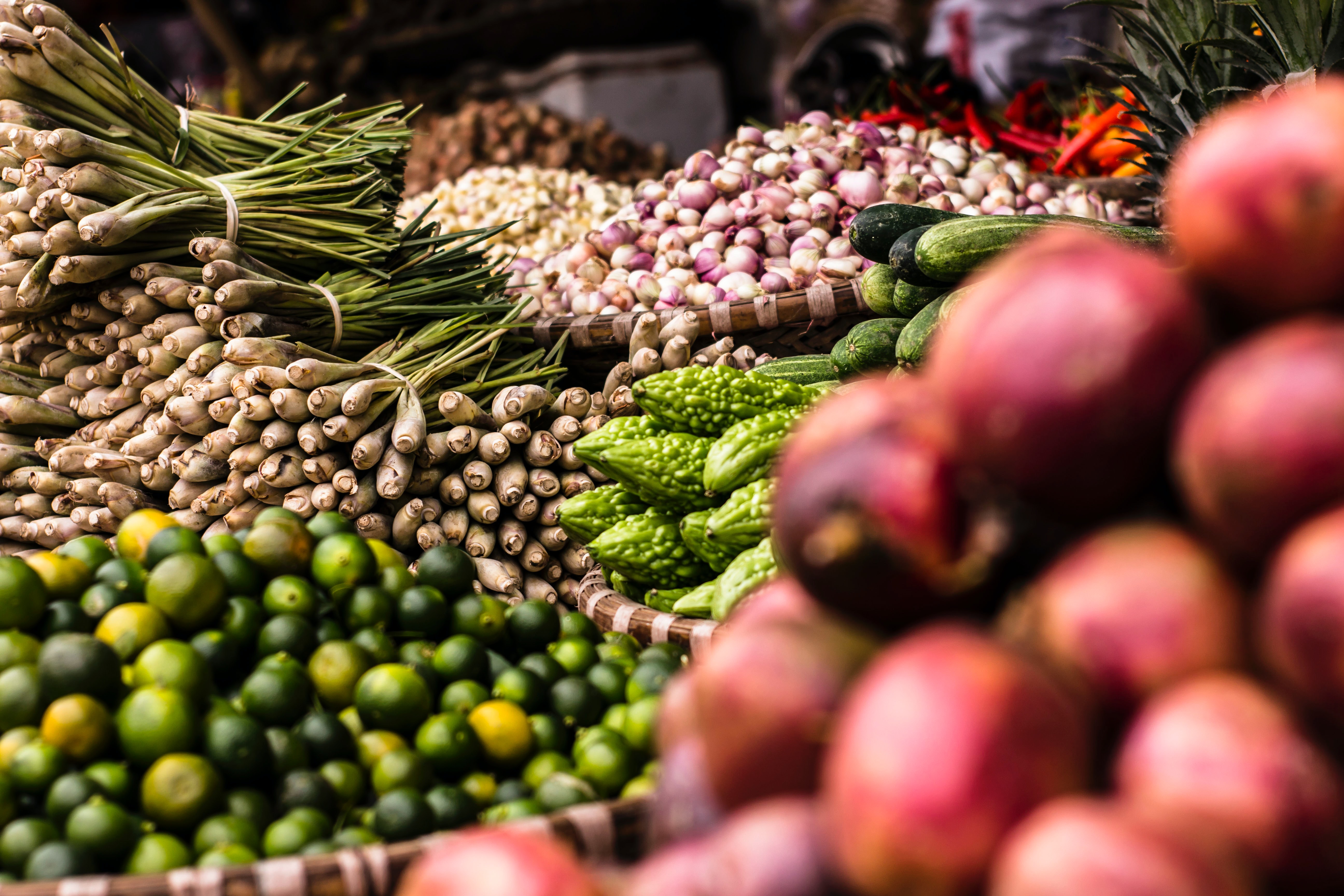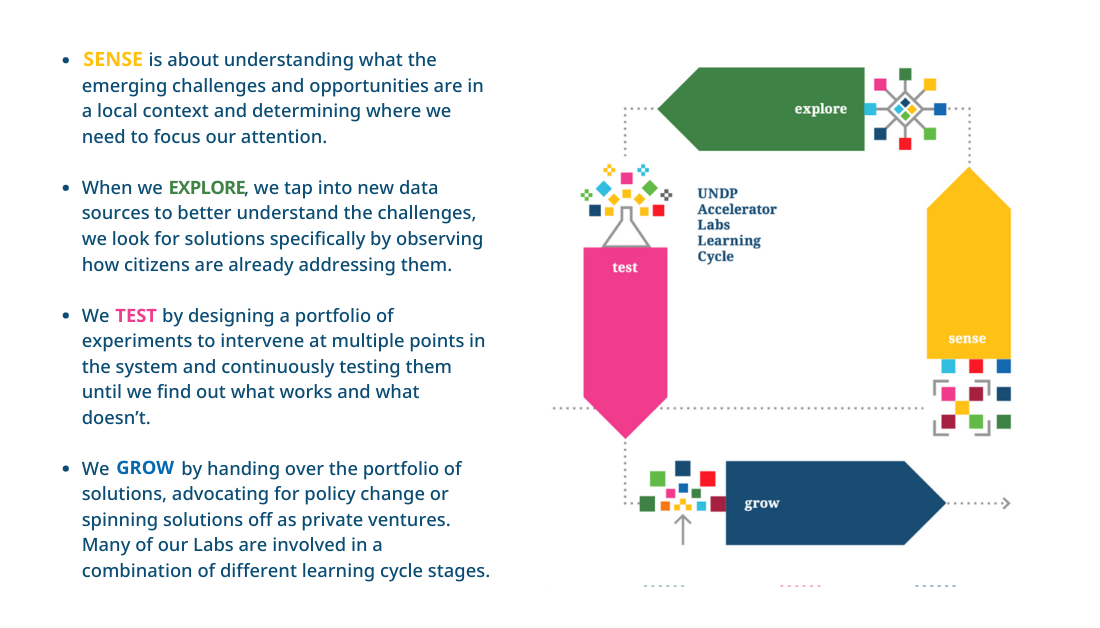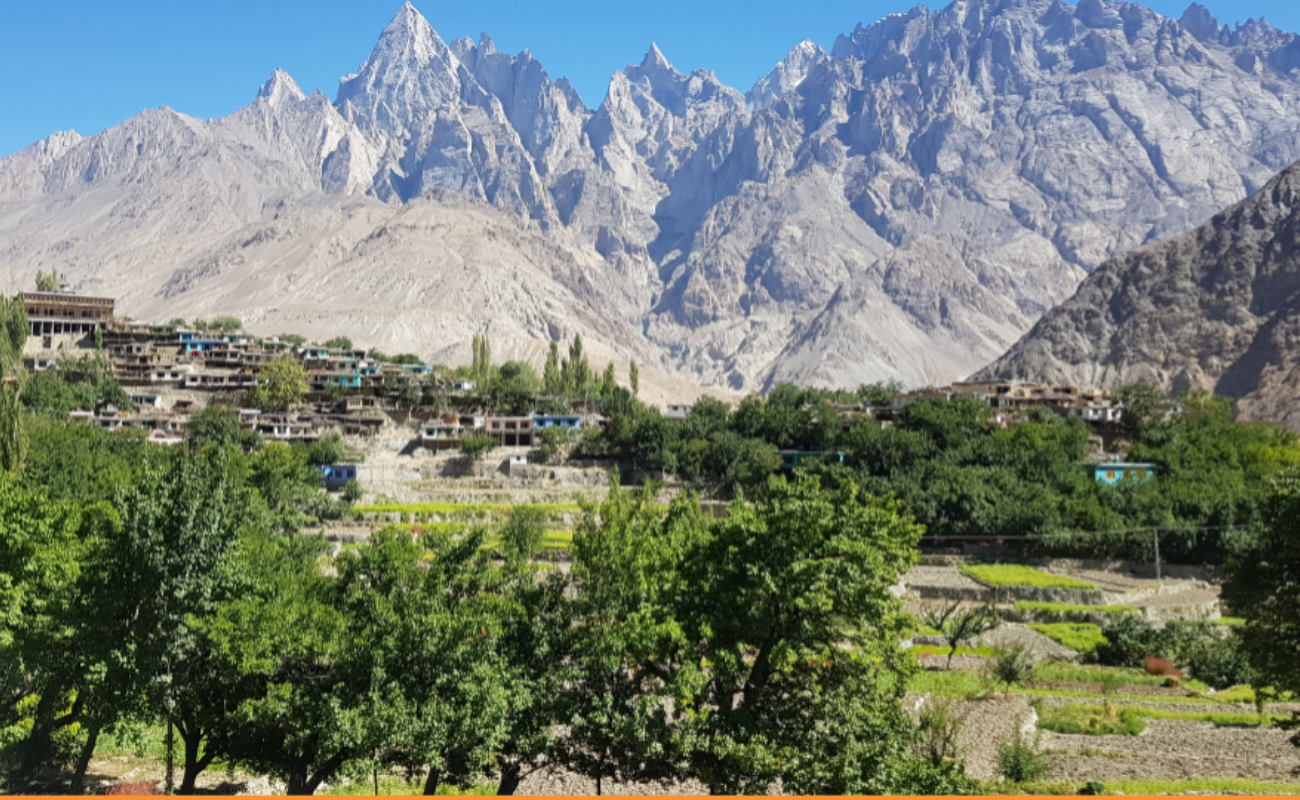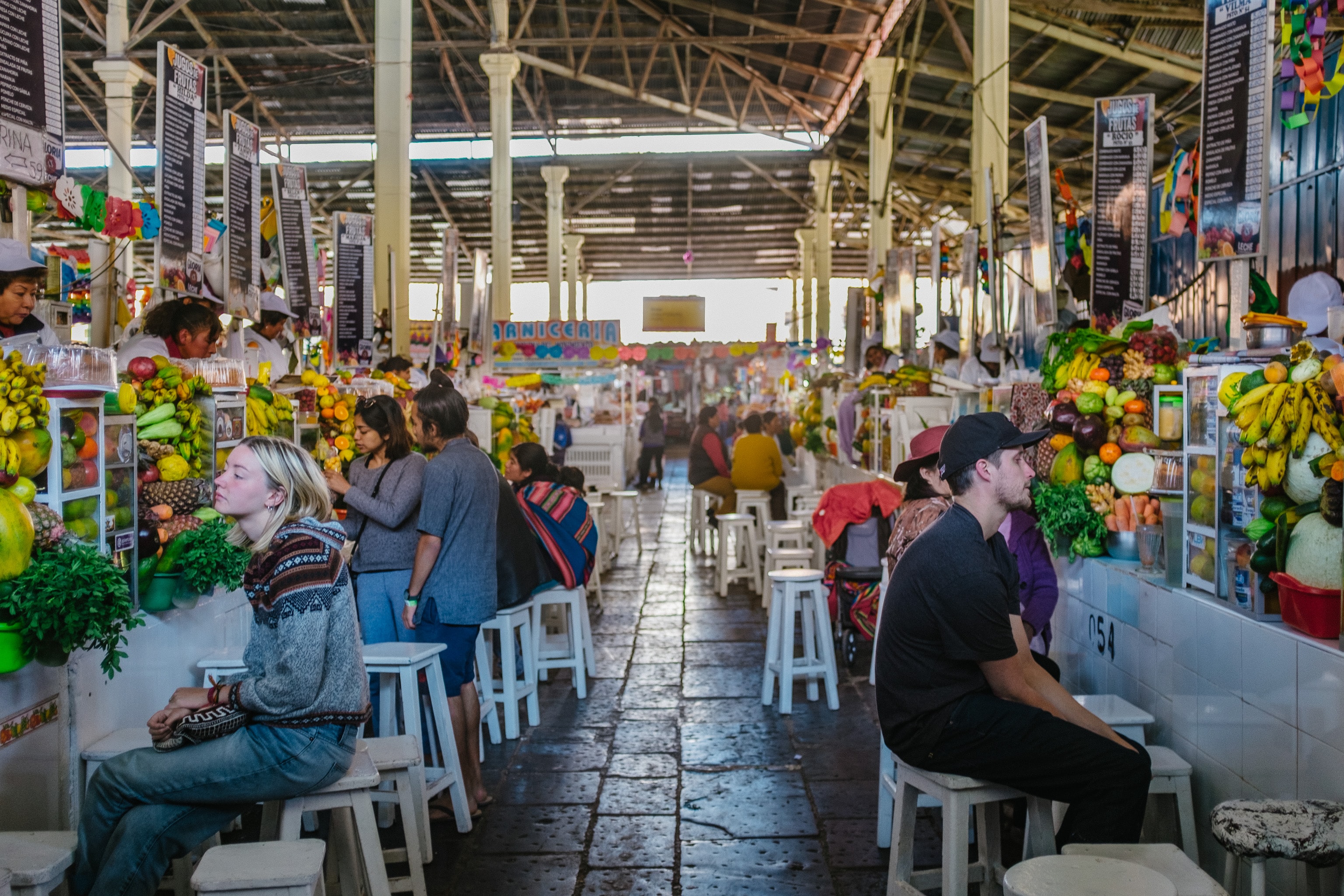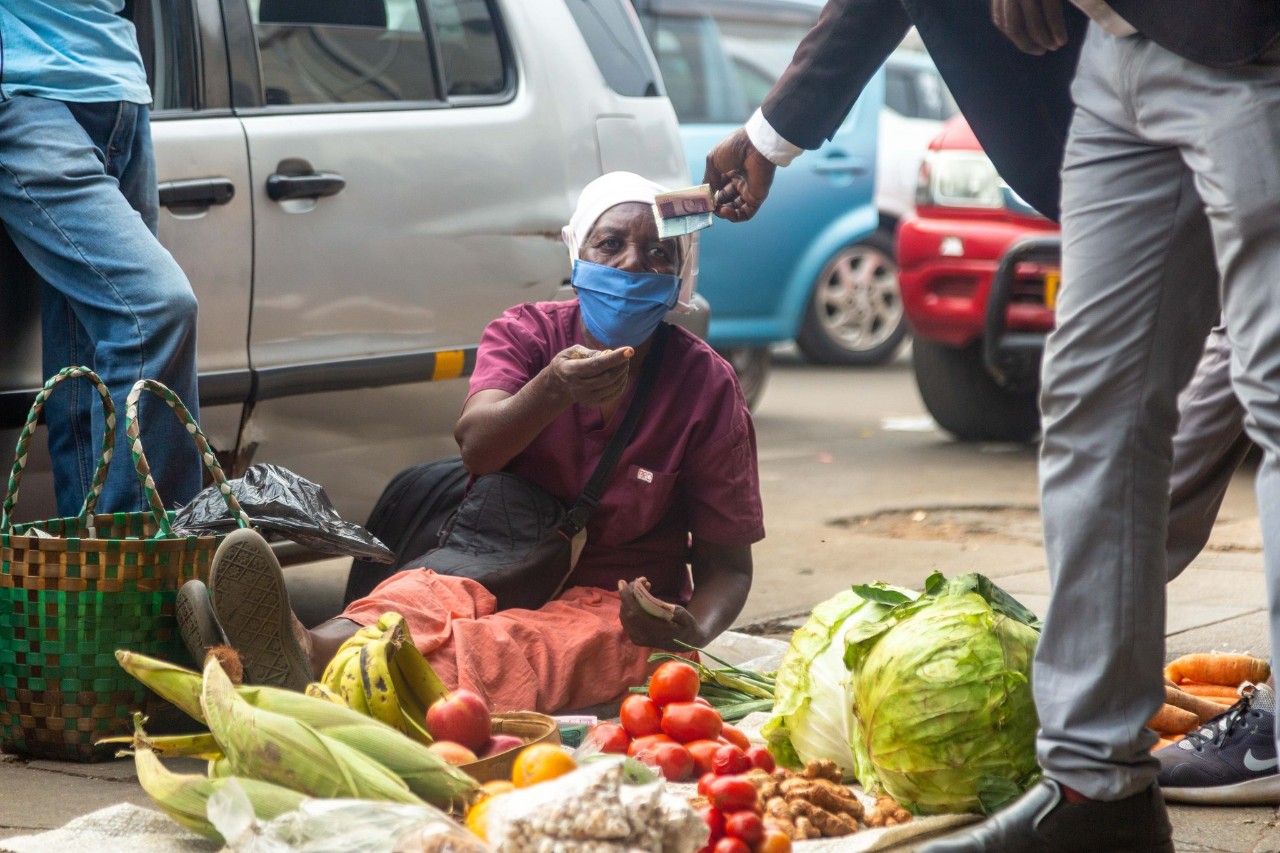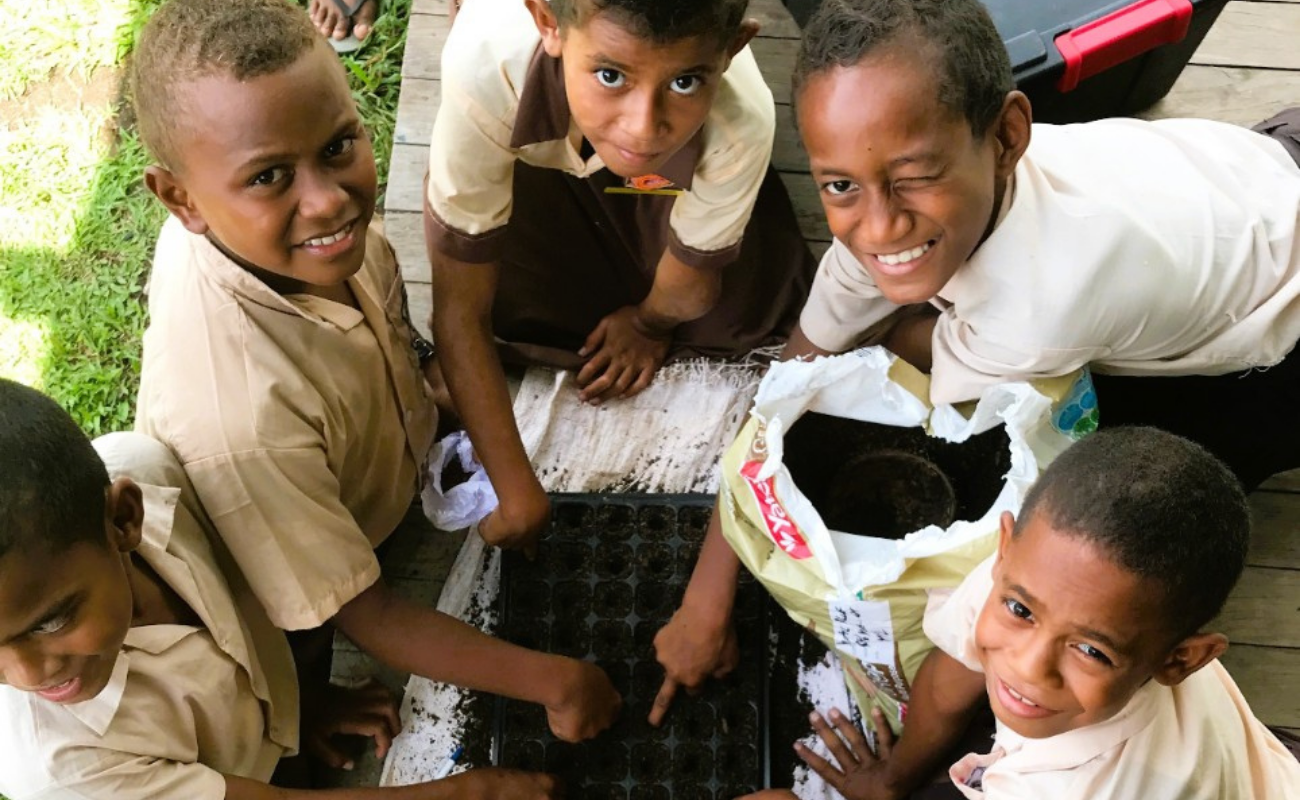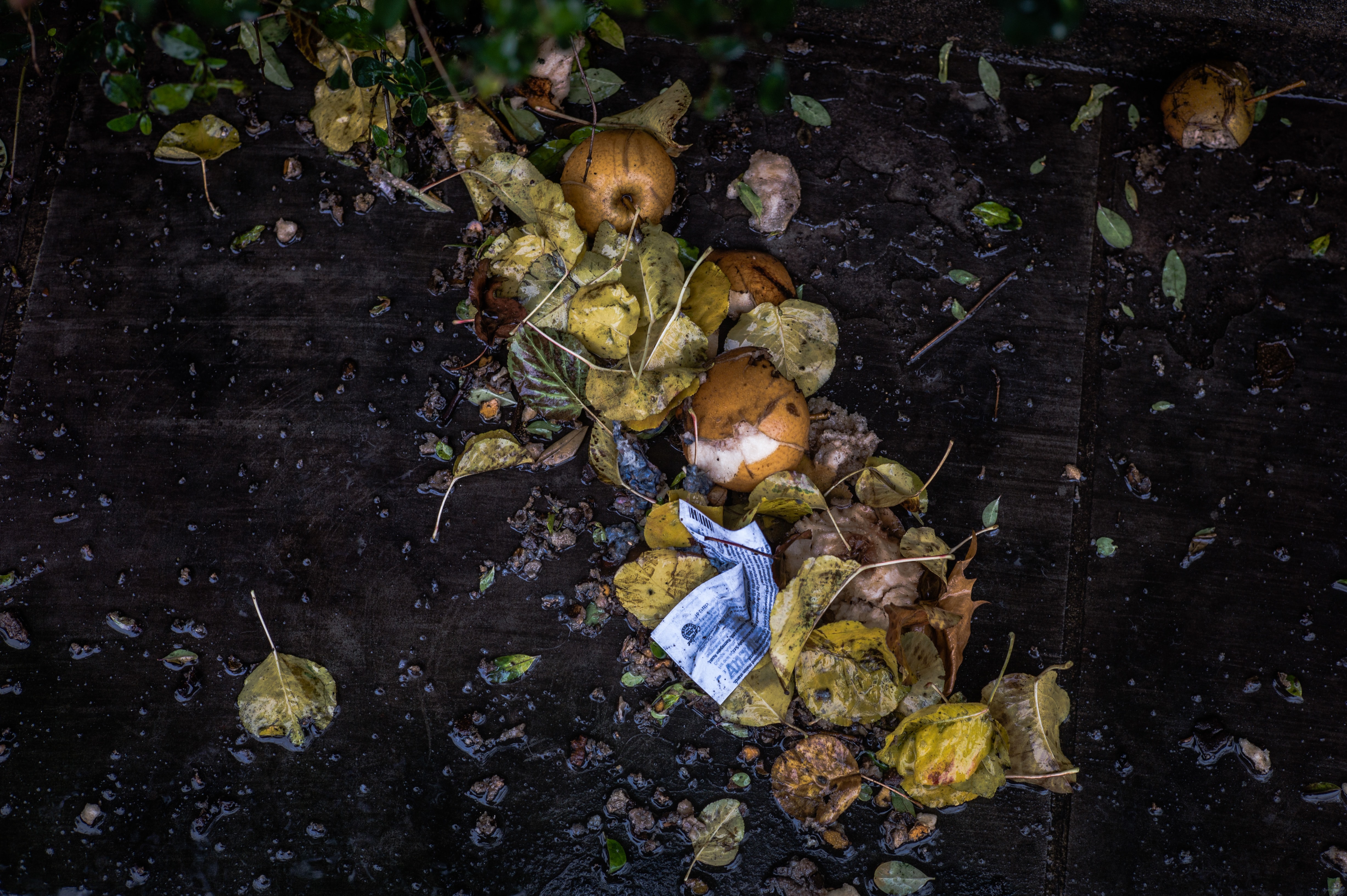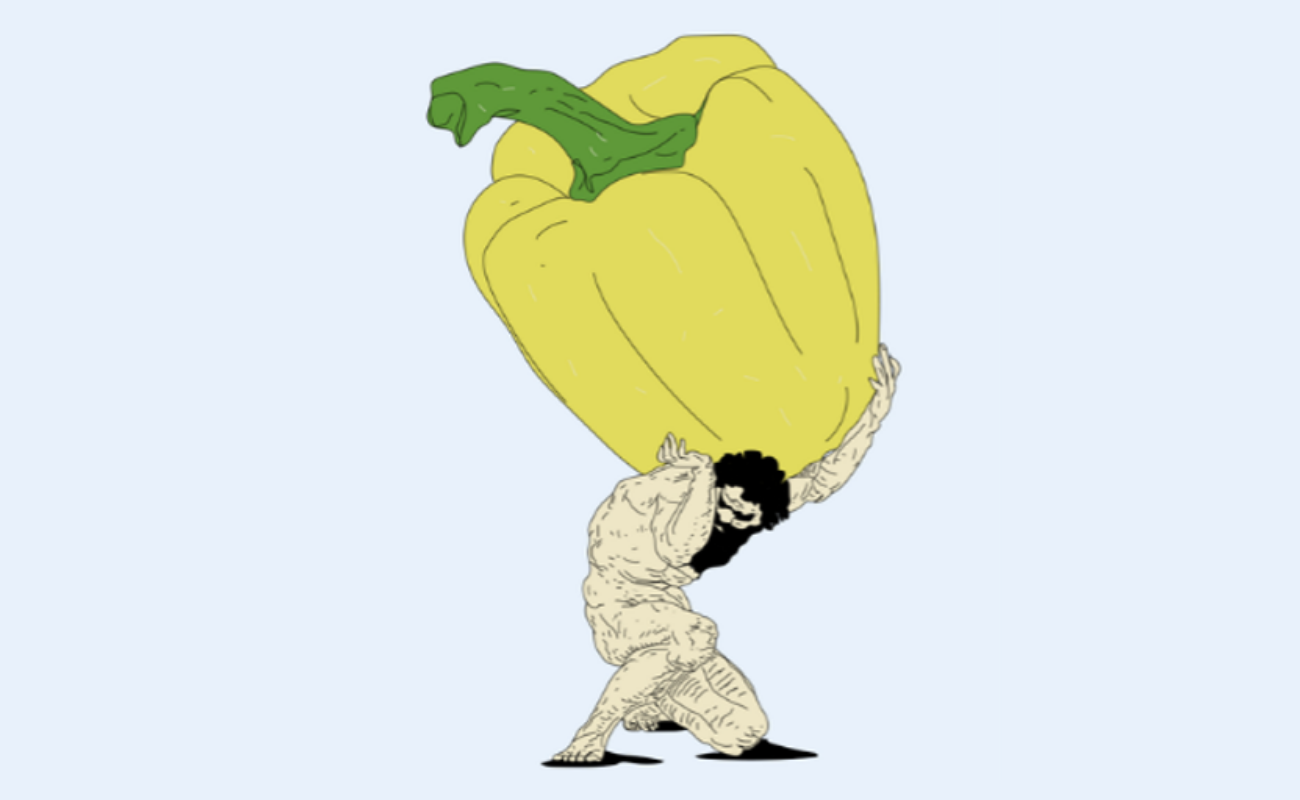Seeding collective solutions: working with grassroots communities to build better food systems for everyone
Seeding collective solutions: working with grassroots communities to build better food systems for everyone
April 11, 2022
Contributors:
Javeria Masood, Head of Solutions Mapping, UNDP Pakistan Accelerator Lab
Mohseen Riaz Ud Dean, Head of Community Research and Ethnographic Solutions Mapping, UNDP Pacific Islands Accelerator Lab
Gift Ntuli, Head of Experimentation, UNDP Zimbabwe Accelerator Lab
Amina Omicevic, Head of Solutions Mapping, UNDP Bosnia and Herzegovina Accelerator Lab
Marina Olcese, Head of Exploration, UNDP Peru Accelerator Lab
What’s on your plate? Food security falters in many countries, but there is a bumper crop of local solutions!
It is a particularly vexing dichotomy. The World Food Program estimated that last year, more than 800 million people were suffering from hunger, while at the same time, food waste is piling up, which also presents untold problems for the environment, such as the release of methane gas, which contributes to the greenhouse effect, and is responsible for more than 25 per cent of the warming we are experiencing today. (IPCC)
Food security and waste were the focus at the 2021 UN Food Summit last September, and these problems remain at the forefront of sustainable development challenges. The UNDP Accelerator Labs are holding conversations around food security in order to work out loud and share our learning as we go. This is part of our philosophy. We use a learning cycle model where we sense, explore, test and grow to understand complex problems within the food systems. Then we are able to close this cycle and share what we learn with the world. This time, we literally shared out loud, since we tested Twitter Spaces conversations for the first time and brought two deep discussion sessions with Labs and solutions holders to a wider audience. This blog is the result of those conversations.
The UNDP Accelerator Labs’ learning model in action.
SENSING: Can you hear us? Deep listening to understand the complex nature of food systems
Surrounded by mountains and rivers, the lush and green Hushe Valley, with a population of 15,000 people, is rich in natural resources and beauty. Due to a lack of systemic development investments, it is still deprived of basic necessities. The UNDP Pakistan Accelerator Lab is focusing on food systems for seven remote and vulnerable villages who are isolated in this vast area, due to limited access to roads, connectivity, information and resources.
With the help of the Baltishtan Foundation, 200-plus in-person interviews were conducted prior to COVID-19. Once the pandemic began, the Lab pivoted to digital deep listening. Over 500 people were reached in this way for a deeper ethnographic inquiry and follow-up interviews. To enable this level of connection, the Lab used Interactive Voice Response (IVR), 300,750 blast SMS texts, 20,000 robocalls and a call center in the local language to engage the community in longer conversations.
In the remote Hushe Valley, rural farmers are adopting the idea that they can create businesses with their abundant food products. Photo: Javeria Masood
Through the Lab’s listening and mapping work and the digital listening analysis -- done with tools such as natural language processing -- several thematic areas emerged. What the Lab learned while hearing stories and mapping inhabitants’ day to day, was that most of their routine, geographical locations and even personas revolve around food. Food economy can be an anchor used to respond to other problem areas, such as women’s health and the effects of climate change in the valley through a strategic and systemic portfolio of initiatives. The Lab’s goal is to socio-economically empower the people of Hushe Valley through the food economy.
Three areas of opportunity to improve food security quickly arose from this work: the abundance of apricots, herbal tea processing and the possibilities for tunnel farming (growing non-seasonal plants and crops in a controlled environment) through hybrid seeds. The Lab is helping to build prototypes for the community to derive sustainable products such as apricot oil and to market and sell herbal teas.
A food market in Cusco, Peru, demonstrates the abundance of food Peruvians love, which is in contrast to the level of food insecurity in the country.
EXPLORE: All roads lead to food -- navigating inclusive approaches and new data to build a
collective response
When we say “exploration” we imagine ourselves visiting a deep cave in the mountains. Rather than stumbling inside without knowing the pitfalls, we rely on the following: advance preparation for our mission, collective knowledge about the terrain, guides who know the way and a clear set of best practices for the adventure. In many countries the food systems are as complex as cave systems and we don’t go in alone. In Peru, the Accelerator Lab found that the right path to sustainable food systems is calling on the collective intelligence of diverse voices in the food sector.
Gastronomy is a part of the national pride and culture in Peru. But in yet another example of the drastic dichotomies in food systems, 4.5 million people in Peru are in a situation of severe food insecurity, and an estimated 47.6 percent of the national food supply is lost to waste. Rates of chronic malnutrition in children under five have not improved in the last three years.
Leading up to the United Nations Summit on Food Systems in September 2021, the Peruvian National Government needed to plan and execute a Peruvian contribution to the Summit with very little time and while under restrictions from the COVID-19 pandemic. Considering the lack of a country-wide debate, the Lab stepped up to support the Peruvian Government and the UN System in designing a multi-actor journey that brought a variety of people “to the table,” to generate momentum around the topic of food systems in Peru. This was a decided contrast with how these meetings had always been done before. Actors in the Peruvian food system, including those who usually are not invited to participate, such as university students and small-scale farmers, had conversations around the five action tracks of the UN Summit on Food Systems. A consensus was easily reached because the Lab designed a collective intelligence methodology in a virtual environment that promoted a diversity of ideas without the formality of an in-person meeting. Everyone had a chance to add their ideas and vote on them equally.
As a result, insights from these national dialogues were integrated into Peru's National Roadmap on Sustainable Food Systems and Gastronomy, and informed Peru’s position at the Summit. The Peruvian situation provided a perfect chance to show the idea behind the Lab’s motivation: “everyone has a solution.”
Informal market vendors hold the key to uncovering the issues of food security in Zimbabwe.
In Zimbabwe, exploration took a different path for a no less crucial problem. 2.4 million people in urban areas were estimated to be food insecure in 2020. Zimbabwe has the world’s second largest informal economy with over 60 percent of the population relying on informal activities for their source of income. Informal actors in the food supply chain include growers, distributors and sellers. But what are the building blocks for this highly complex informal ecosystem that supports food production and consumption?
The UNDP Zimbabwe Accelerator Lab figured out quickly that there is a need to use a variety of different data for a three-dimensional view to look at the problem from all sides. The first step was to find and uncover new data sources. Second, to look at this data and present it in new ways using, for example, Augmented Reality (AI). The goal was to make the supply chain more understandable, more transparent and more efficient, particularly in a post-COVID-19 landscape. This data project was embedded into the UNDP Zimbabwe Country Office programming as the E-Solutions component of a nationwide program called the “Safe Markets Program.” Learning from the COVID-19 pandemic, the Safe Markets Programs is aimed at making informal market spaces and supply chains more resilient to disruptions.
Additionally, through observational data, the Lab became aware of another food systems dichotomy: even though urban hunger has sharply increased due to the pandemic, there is still rotting food in the streets and markets. It is not only an issue of production but driven by a lack of transparency in volume and pricing of produce across markets. One market might have a lot of sweet potato that goes to waste, in another market there might be a shortage of sweet potatoes, which causes a spike in the price.
The Accelerator Lab is playing a key role in helping to create a visualization dashboard for a system that collects the volume and pricing data in real time, across the main markets in Zimbabwe, facilitated by UNDP Zimbabwe. This platform will allow policymakers and businesses to understand the demand and supply of produce around Zimbabwe. One important example for policy makers is that Zimbabwe’s main crop, corn (maize), is not climate resilient and needs to be replaced with local, nutritious and climate-friendly crops. In this case, knowledge equals action. We know now what we didn’t know before, so the way forward is clearer.
Secondary school students reap the benefits of an institutional organic farm. Credit: Sefano Moon Katz, Pacific Blue Foundation
TESTING: Using local experiments to surface solutions that address access to food, waste and resilience in crisis
In the Pacific Islands, a major problem in the food security space is the accessibility and affordability of nutritious foods. Here too, the COVID-19 pandemic is a major culprit in contributing to the breakdown of getting good food from farm to table.
For the UNDP Pacific Islands Accelerator Lab, a portfolio approach with three experiments helped determine what type of interventions might or might not work in communities where the food supply is insecure. In Fiji, quick-growing hydroponic kits led to a 75 percent success rate for rural communities to grow their own nutritious, readily available food. The Government of Fiji realized the benefits of the hydroponic experiment and is scaling hydroponics commercially at the national level. In Beqa and Yanuca Islands, hit by both the pandemic and Category 5 Cyclone Harold, an experimental institutional organic farm for the secondary school meant an abundance of vegetables, compost and seedlings, plus organic fertilizer and cooking gas. This community-backed initiative is being scaled to two other primary schools in the area.
Partnering with the private sector led to filling gaps in the availability and accessibility of affordable food in Vanuatu for vulnerable people. Isi Kakai, a local food delivery company, owned by Rebecca Bogiri, supported by the Lab, provided home-delivered food packs to low-income communities. Expansion of this intervention has already begun with two new businesses selling food packs in Vanuatu, and Rebecca plans to include organic produce going forward. The bottom line is that we are seeing small-scale community solutions and solution holders like Rebecca motivating others in the ecosystem to scale and expand on the initial innovation.
In Bosnia and Herzegovina, food represents cultural heritage, but excessive food waste is a growing concern.
GROWING: Scaling up initiatives to influence policymaking and reduce food waste
In Bosnia and Herzegovina more food waste means more problems. Estimates show that about 500 tons of food per day ends up in landfills in Bosnia and Herzegovina. Financial losses to food producers and serious environmental problems are the result. The UNDP Bosnia and Herzegovina Accelerator Lab was approached by the city administration of Sarajevo with these issues in mind. How do we find a smart approach to tackling a cultural indifference towards waste?
The Lab initiated the establishment of the Sarajevo Food Lab – a collective intelligence-based informal network of food enthusiasts, food regulatory bodies, legislators, restaurants and food outlets to support the drafting of the first ever policy on food waste in the country. The Lab next launched an innovation challenge inviting citizens to submit innovations to make communities cleaner. They unearthed 26 well-thought-out solutions.
One standout initiative that was supported by the Lab is a volunteer group that goes to hotels, restaurants, parties and big events in Sarajevo and picks up leftover food to take to families in need. Innovator Dragana Grbić-Hasibović leads this local initiative called, Tanjir Više (An Extra Plate) which addressed the question, “where does all this food go after the party is over?” Food was being wasted while people around the city were going hungry. The next step is the proposed Tanjir Više mobile app which would connect caterers and households reporting excess food to donate with recipients.
The Lab in Bosnia and Herzegovina was able to scale up their initiatives and gain recognition for successful and innovative approaches to food waste because they understood the problem space, sought out those working in that space and created actionable insights for decision makers. Scaling this up to the policy level, the Lab is currently working with city officials to draft recommendations for food waste policies.
The tip of the iceberg in a complex web of food systems
From portfolio approaches in the Pacific Islands, to a data-driven 3-D view in Zimbabwe, to directly affecting waste management policy in Bosnia and Herzegovina, the UNDP Accelerator Labs are spreading the net wide to crack complex, pressing food-related problems through our learning cycles.
Our Labs’ learnings do not simply inform, rather they are used to grow and scale individual programs and to affect policies that improve lives while intervening to change systems. We start with sensing and exploration, then we share what we’ve learned. In Peru we saw how exploration started with an interest in bringing collective intelligence into the dialogues on food and grew to influence public policies at the highest levels of government. In the Pacific Islands, we can see how exploring the benefits of supporting one urban garden can incentivize the building of others.
Taking a learning approach proves very useful as we surface what the Accelerator Labs are learning on complex food systems across Pakistan, the Pacific Islands, Peru, Zimbabwe and Bosnia and Herzegovina. From digitalizing food supply chains to strengthening local traditional food ecosystems, we see our Labs gathering knowledge that can help build more sustainable models.
-------------------------------------------------------------------------------------------
Join the UNDP Accelerator Labs in our ongoing Twitter Spaces discussions for groundbreaking work on global issues. Follow us @UNDPAccLabs for announcements.

 Locations
Locations